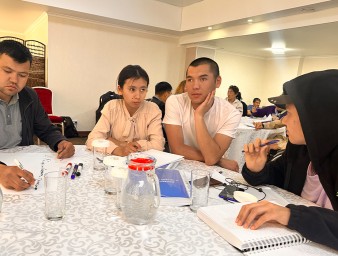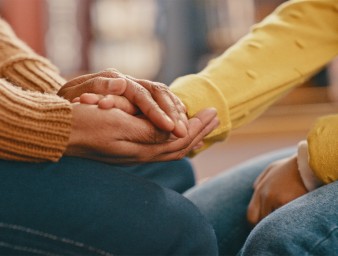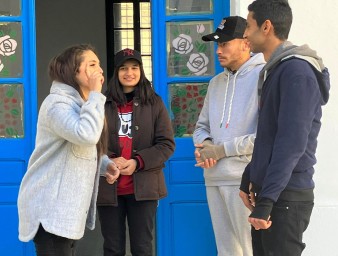“Care and support allow me to live independently”
04 December 2023
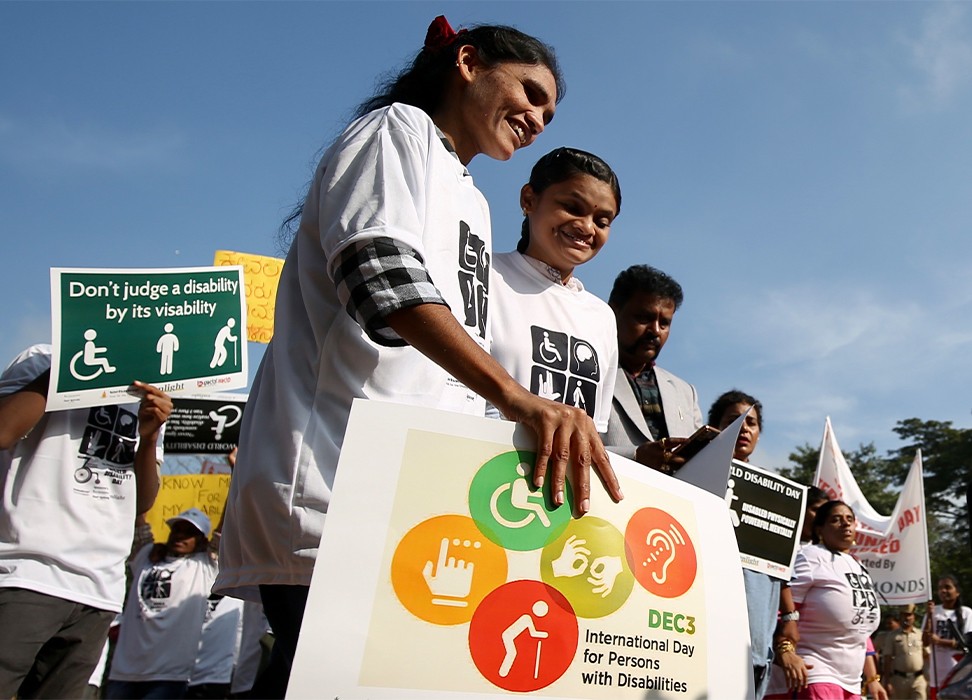
The one thing Nicolas Joncour cherishes most about his life is his freedom. To do what he wants to do and not depend on his family all the time. Freedom to go to a concert or to the movies. To spend time with friends. To choose a field of study and live in a university residence like any other student.
“No one should be punished for being disabled,” said Joncour, an activist for the rights of persons with disabilities and their right to live independently in the community. “To live as normally as possible, we need to be considered as people in our own right, with the determination to live without constraints.”
Joncour, 23, has a cognitive disability and communicates by typing on a keyboard or an iPad. Thanks to an adequate care and support system, he can lead an independent life as a student in Rennes, France, where he moves around on foot or on the metro accompanied by a personal assistant. An assistant also helps with cooking, washing, homework and research, and reads books out loud for him.
“This feeling of freedom is the most important thing,” said Joncour, a member of the European Network on Independent Living (ENIL), an organization of persons with disabilities. “I need full-time assistance and have financial aid for it, which unfortunately is not very frequent. Without support systems in place, people lose control over their destiny and are at risk of being institutionalized.”
While care and support allow Joncour to live with autonomy and enjoy a social life, not every person with disabilities is in his situation.
Around the world, millions of people do not have adequate care and support systems, a reality that denies people their rights, holds back their potential and undermines economies. A disproportionate number of persons with disabilities live in developing countries, often marginalized and in extreme poverty.
Dignified lives
Marking the International Day of Persons with Disabilities on 3 December, Human Rights Chief Volker Türk called on all governments to prioritise and fund disability-responsive support and care systems.
“People with disabilities have the right to lead dignified and independent lives like all people, defined by their own choices and aspirations,” Türk said. “It’s time to act for the rights of people with disabilities now.”
Support and care systems are essential for persons with disabilities to fully participate in society, with choices equal to others, and to live with dignity, autonomy and independence. Without such systems, persons with disabilities can be at risk of falling into poverty and exclusion, violence, exploitation and abuse, living in isolation or being institutionalized.
The Convention on the Rights of Persons with Disabilities requires States to promote, protect and ensure the full and equal enjoyment of all human rights and fundamental freedoms by all persons with disabilities, and to promote respect for their inherent dignity.
UN Human Rights plays a central role in promoting the rights of persons with disabilities. This work includes supporting States to build national capacity through advisory services, research and analysis and expert mechanisms. The Office also engages with governments and civil society to raise awareness, understanding and recognition of disability as a human rights issue.
Martyna Balciunaite-Albaret of the Office’s Human Rights and Disability Unit said promoting the full inclusion and participation of persons with disabilities requires a systemic approach as well as effective and appropriate measures.
“We must place the rights of persons with disabilities at the center of laws, policies and programs regulating support and care systems, including dedicated funding for disability inclusion,” she said. “Care and support economy and systems must reflect the rights of persons with disabilities, safeguard against the negative effects of traditional care models, recognize their roles as carers and care and support receivers and ensure their autonomy, agency and independence”.
Many people with disabilities need support systems that include services, products and persons to be autonomous and to participate in the community. Balciunaite said that to leave no one behind, support systems should also consider age and gender.
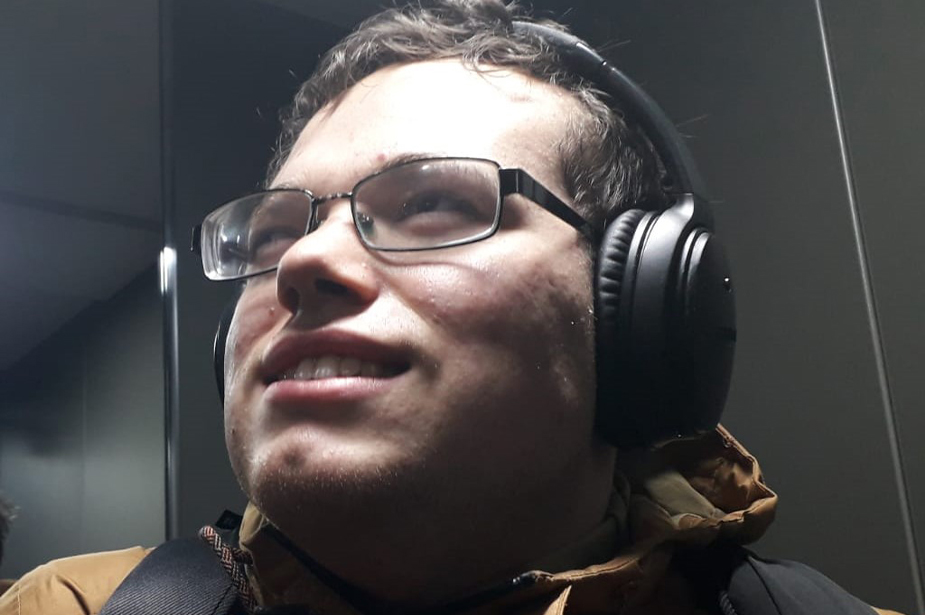
“Care and support systems allow me to live independently.” Nicolas Joncour. © Nicolas Joncour
“My voice is empowered”
Becoming an advocate for the rights of people with disabilities and for independent living has given Joncour a purpose. He has a YouTube channel and recently joined ENIL Youth Network’s Board to fight for deinstitutionalization.
“Taking part in the Independent Living movement allowed me to see a very joyful perspective of activism. My voice is empowered and I have control over my own decisions. I am so happy to travel to defend our rights, delivering a message of freedom for the whole disabled community,” he said.
Studying law and sociology was only natural for him, as he is interested in the implementation of the Convention on the Rights of Persons with Disabilities, especially Article 12, equal recognition before the law.
“We must abolish guardianship and replace it with support for decision-making, and have access to the same things as non-disabled people. So barriers are not there anymore.”
Joncour said his life is similar to that of many students – study, classes, a bite at the university cafeteria before heading back to the dorm to finish up his homework – but that he still faces many barriers.
“Often, I'm not seen as a person. People talk to my personal assistant rather than to me, or they talk to me as if I were a child,” he said. “Sometimes people don’t take the time to listen to what I want to say. Typing requires time, and patient people are rare.”

